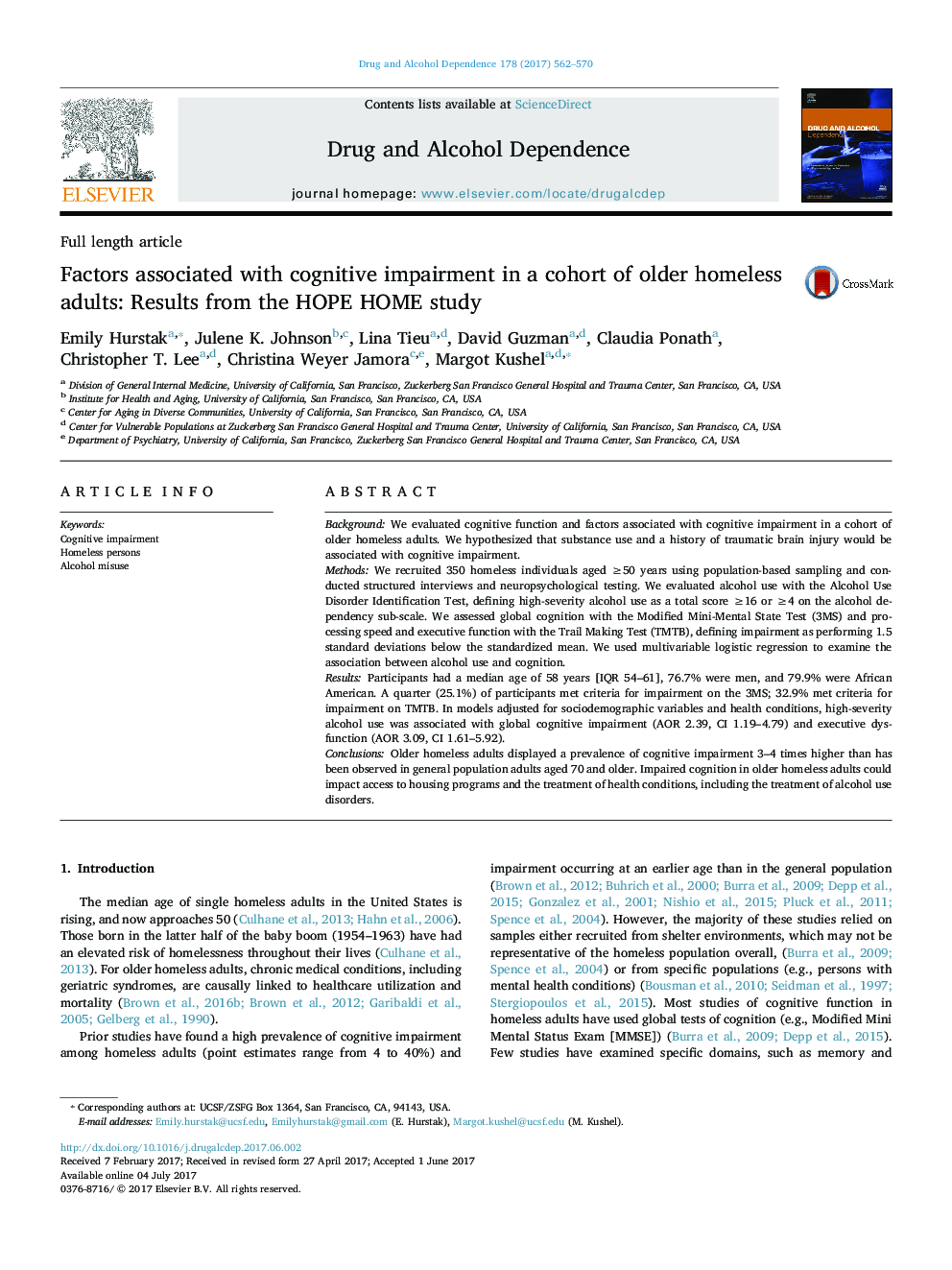| کد مقاله | کد نشریه | سال انتشار | مقاله انگلیسی | نسخه تمام متن |
|---|---|---|---|---|
| 5120388 | 1486113 | 2017 | 9 صفحه PDF | دانلود رایگان |

- Cognitive impairment occurs at younger ages than expected among homeless adults.
- Alcohol misuse, more than other risk factors, is strongly associated with impairment.
- Impaired cognition may impede the treatment of substance use disorders in homeless adults.
BackgroundWe evaluated cognitive function and factors associated with cognitive impairment in a cohort of older homeless adults. We hypothesized that substance use and a history of traumatic brain injury would be associated with cognitive impairment.MethodsWe recruited 350 homeless individuals aged â¥50 years using population-based sampling and conducted structured interviews and neuropsychological testing. We evaluated alcohol use with the Alcohol Use Disorder Identification Test, defining high-severity alcohol use as a total score â¥16 or â¥4 on the alcohol dependency sub-scale. We assessed global cognition with the Modified Mini-Mental State Test (3MS) and processing speed and executive function with the Trail Making Test (TMTB), defining impairment as performing 1.5 standard deviations below the standardized mean. We used multivariable logistic regression to examine the association between alcohol use and cognition.ResultsParticipants had a median age of 58 years [IQR 54-61], 76.7% were men, and 79.9% were African American. A quarter (25.1%) of participants met criteria for impairment on the 3MS; 32.9% met criteria for impairment on TMTB. In models adjusted for sociodemographic variables and health conditions, high-severity alcohol use was associated with global cognitive impairment (AOR 2.39, CI 1.19-4.79) and executive dysfunction (AOR 3.09, CI 1.61-5.92).ConclusionsOlder homeless adults displayed a prevalence of cognitive impairment 3-4 times higher than has been observed in general population adults aged 70 and older. Impaired cognition in older homeless adults could impact access to housing programs and the treatment of health conditions, including the treatment of alcohol use disorders.
Journal: Drug and Alcohol Dependence - Volume 178, 1 September 2017, Pages 562-570